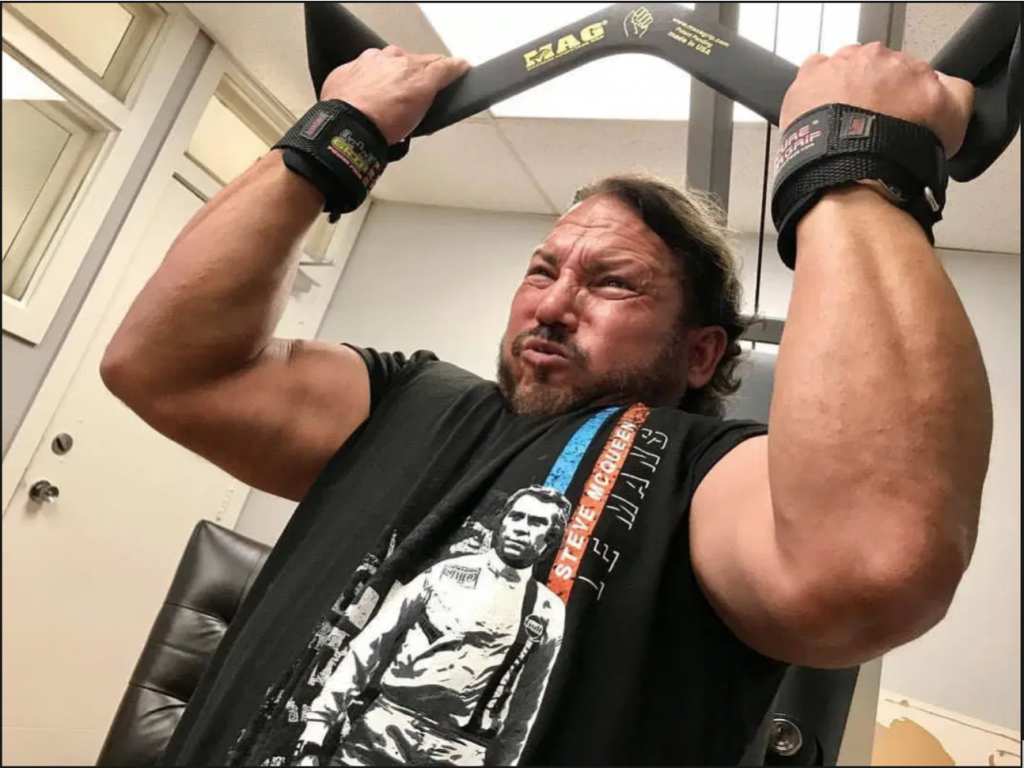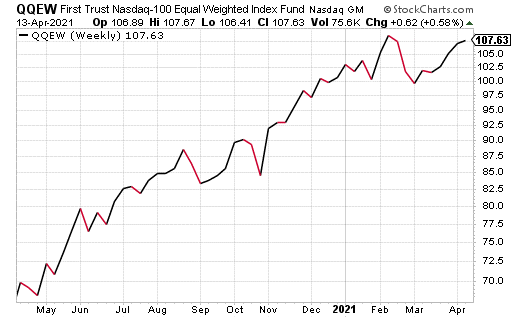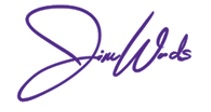How to Do Less and Achieve More
- How to Do Less and Achieve More
- ETF Talk: Tracking the Nasdaq 100 With an Equal Weighted Index Fund
- Don’t Be a Vaccine Stupido
- Nobody Wins
***********************************************************
Want to achieve more in life? Of course you do. The fact that you read this publication basically tells me that. Yet, for most of us, the idea of achieving more comes with the corollary notion that we are going to have to do a lot more, put in more hours, work harder and generally take on more and more tasks and responsibilities.
Yet, what if doing less could allow you to achieve more?
Now, when I say, “doing less,” I am not talking about slacking off and just letting fate’s wind sail you across life’s lake. What I am referring to here is taking on fewer overall tasks and really concentrating on getting the critical things in life right.
Another way to describe this principle in action is to hone your focus on the most important tasks at hand, and thereby become a “master of selectivity.” You see, it is by concentrating your efforts on the most important priorities that are needed to achieve your goals, and letting go of extraneous and often distracting tasks, that you can enhance your performance in business and in life.
This idea of mastering selectivity and prioritizing tasks was the subject of a Wall Street Journal article titled, “How to Succeed in Business? Do Less,” by Morten Hansen, a former management consultant and now Professor of Management at the University of California, Berkeley.
In the article, Hansen explained how his strategy for success at his “dream job” at Boston Consulting Group was to work exorbitant hours, a practice which he said often resulted in 90-hour workweeks. Yet, despite all his time and hard work, there was one colleague he had that put in far fewer hours, yet always had better solutions to problems than he did. Moreover, this co-worker put in a normal 8 a.m. to 6 p.m. day, never stayed late and never worked nights or weekends.
So, was this outperforming coworker just that much smarter and talented than Hansen (as well as the rest of his colleagues)?
What Hansen discovered later in his academic research is that it’s not a case of “talent” or “natural ability” or the willingness to “work hard” that results in successful outcomes. Rather, researchers have found that what is even more important to success is the ability to master selectivity.
“Whenever they [top performers] could, they carefully selected which priorities, tasks, meetings, customers, ideas or steps to undertake and which to let go,” wrote Hansen. “They then applied intense, targeted effort on those few priorities in order to excel.”
Hansen’s research also found that just a select few critical work practices accounted for as much as two-thirds of the variation in performance among the subjects in a 2011 research study. “Talent, effort and luck undoubtedly mattered as well, but not nearly as much,” wrote Hansen.
So, how did the best performers in his study do this?
According to Hansen, “Rather than simply piling on more hours, tasks or assignments, they cut back.” Hansen then likened this ability to cut back and focus on what really makes the most difference to the philosophical principle known as Occam’s razor. Named after the philosopher and theologian William of Ockham, this principle stipulates that the best explanation in matters of philosophy, science and other areas is usually the simplest.
“At work, this principle means that we should seek the simplest solutions — that is, the fewest steps in a process, fewest meetings, fewest metrics, fewest goals and so on, while retaining what is truly necessary to do a great job,” wrote Hansen. “I usually put it this way: As few as you can, as many as you must.”
I like to apply this principle to my own life via something called the “minimum effective dose.” What this means is you want to concentrate on doing the things that have the most impact on your results and that have the fewest extraneous elements and/or time commitments.
For example, in the realm of fitness, I engage in what’s known as high-intensity training, or HIT, to get the best strength and conditioning results in the briefest period of time, and in the safest, most efficient manner.

Your editor engaged in the ultra-difficult, ultra-productive and supremely time-efficient high-intensity training protocol.
When investing and selecting top-performing companies for my Successful Investing, Intelligence Report and Bullseye Stock Trader advisory services, I concentrate on finding stocks with the strongest earnings and strongest relative share-price performance. They also have to be in the strongest industry groups. By focusing on these key components and filtering out much of the “noise” of extraneous data, I am better able to make good investment choices.
Finally, the principle of focusing more on less, i.e. focusing your effort on the most critical elements of a task or objective, rather than becoming sidetracked by the superfluous, is something we can all apply to nearly every part of our lives.
So, if you want to achieve more success in any walk of life, focus on the critical elements and then get them right. Once you do that, you’ll often find the rest tends to fall into place.
***************************************************************
ETF Talk: Tracking the Nasdaq 100 With An Equal Weighted Index Fund
For investors looking for equal-weighted exposure to the Nasdaq 100, the First Trust Nasdaq-100 Equal Weighted Index Fund (NASDAQ: QQEW) may be of interest.
The exchange-traded fund (ETF) is a tech-focused index that is comprised of 100 of the largest domestic and international non-financial companies within the Nasdaq Stock Market, based on their market capitalization. The fund is rebalanced quarterly and provides equal allocation to all of the companies within its portfolio with no bias toward their sector or market-cap weighting.
QQEW is a fund that is intended to approximate the performance of the Nasdaq 100 for investors who are interested in a purer form of exposure to the non-financial space with less concentration. Though the fund has less liquidity than some of its peers, it may be appealing to longer-term investors since its equal-weighting methodology mitigates some of the impact from the Nasdaq 100’s tech-heavy composition.
QQEW has a 0.59% expense ratio and a modest 0.32% dividend yield. The fund has $1.26 billion in assets under management and $1.24 billion in net assets. Year to date, this ETF has shown solid performance, with a mid-sized dip in September 2020 and another one two months later in November.
However, since that November dip, the fund has had a solid run. Today, the fund opened at $107.19, which is at the high end of its 52-week range.

Tech stocks compose 37.55% of the fund’s portfolio, with health care, 15.84%, and consumer cyclical, 13.87%, holdings not far behind. The fund’s top five individual holdings include Applied Materials Inc. (AMAT), 1.13%; KLA Corp. (KLAC), 1.11%; ASML Holding NV ADR (ASML), 1.10%; Cadence Design Systems Inc. (CDNS), 1.07% and Costco Wholesale Corp. (COST), 1.07%.
In summation, the First Trust Nasdaq-100 Equal Weighted Index Fund (NASDAQ: QQEW) tracks 100 of the largest domestic and international non-financial companies listed on the Nasdaq Stock Market. Unlike other funds, QQEW has no bias toward market sector or weighting when adding to its portfolio. As it is equally weighted and rebalanced quarterly, it may be a good way to gain broad-based exposure to the Nasdaq 100, as well as a potentially strong long-term investment.
However, I urge interested investors to conduct their own due diligence to decide whether this fund fits a particular individual’s personal portfolio goals.
As always, I am happy to answer any of your questions about ETFs, so do not hesitate to send me an email. You just may see your question answered in a future ETF Talk.
*****************************************************************
In case you missed it…
Don’t Be a Vaccine Stupido
Last Friday, I got “the jab” as the Brits say. Here in the States, we simply call it getting “the shot.” That shot, of course, is the COVID-19 vaccine, and in my case, it was the first dose of the vaccine developed by Pfizer-BioNTech.
According to the Centers for Disease Control and Prevention (CDC), the Pfizer-BioNTech version is 95% effective at preventing laboratory-confirmed COVID-19 illness. And while being fully vaccinated (I am scheduled for my second dose on April 23) won’t totally prevent me from contracting COVID-19, it will almost certainly prevent me from becoming severely ill (or worse) from the virus that turned our world inside out for the better part of what is now about 16 months.
I must say that I am extremely grateful to now be at least partially vaccinated. And I am even more grateful for, and frankly in awe of, the scientists and the drug makers that put their knowledge, effort and capital to use to create this life-saving vaccine. I am also grateful for the Trump administration and Operation Warp Speed, the battle plan it launched to fast track five vaccine candidates to produce a viable vaccine in record-breaking time.
Yet, much to my surprise, and to my rational dismay, there seems to be a very large contingent of Americans who openly say that they are not planning to get the vaccine. Moreover, that group tends to be overwhelmingly male and overwhelmingly Republican. And since many in my audience also are male and Republican, I thought it important to speak out on this issue.
According to a recent NPR/PBS/Marist survey, 49% of Republican men said they do not plan to get vaccinated. That group was by far the highest number of “refusers” compared to any other demographic group. Among Democratic men, the number of refusers was just 6%.
And this poll isn’t just a one-off either.
A recent CBS News Poll found the following: “Republicans and conservatives are the most likely group to express hesitancy. However, there are clear differences by age, with older Republicans more likely to express willingness to get their shots. In fact, a majority of Republicans age 65 and older report having already been vaccinated, while most of those under age 45 express hesitancy.”
So, why is there hesitancy among younger Republicans? According to the CBS News poll respondents, those who outright say they would not get the vaccine cited as their reason “distrust of the government, as well as of the scientists and companies that make the vaccines.”
Now, I am a small “l” libertarian. That means I think that government should have the smallest possible footprint and influence in our lives. I’m also a “radical for capitalism,” meaning I think the private sector should deal with nearly every issue government currently is involved in except for police, courts and the military.
However, the idea that you would not willingly take a life-saving vaccine because you distrust government, science and pharmaceutical companies is just not rational.
That’s like not eating because you distrust preservatives in your food, or not drinking water because it might have some harmful bacteria.
Yes, I know the vaccine has been fast tracked into existence much quicker than any other before. I also know that the new biotechnology that uses messenger RNA vaccines, also called mRNA vaccines, is the first of its kind. While extremely complicated technically, the mRNA vaccines teach our cells how to make a protein or a piece of a protein that triggers an immune response inside our bodies. This technology is new, and it is something to monitor for effects down the road, as any new technology should be.
I also know that we should harbor a healthy distrust of politicians and their motives. And yes, sometimes pharmaceutical companies make mistakes that hurt society, so we shouldn’t have blind trust in that company, or any company.
Yet, concentrating on these issues as reasons why one shouldn’t get the COVID-19 vaccine is like saying you don’t want to wear the seatbelt in your car because it will wrinkle your dress shirt. If you get into a head-on collision with another car and you aren’t wearing your seatbelt, you’ll have much bigger problems than a wrinkled dress shirt.
So, as my Mexican momma might say, “Don’t be an El Stupido.”
Get yourself “the jab,” and make yourself safe. You owe it to yourself, your loved ones and everyone else to make the rational choice and get yourself protected from the COVID-19 viral menace. Doing so will keep you safe, will help put an end to the pandemic and will help society and our economy get back to normal.
Hey, do you remember normal? I do, and I miss it.
Now, go out and get vaccinated.
*****************************************************************
Nobody Wins
Hey, hey pretty baby
I still remember you driving me crazy
And if I never see you again
Have a round on me love, hallelujah
Nobody wins…
–Brian Fallon, “Nobody Wins”
In some cases, our past relationships need to finally be acknowledged as losses. It’s only in this way that we can truly move on. Because, as singer/songwriter Brian Fallon reminds us, sadly, sometimes nobody wins.
Wisdom about money, investing and life can be found anywhere. If you have a good quote that you’d like me to share with your fellow readers, send it to me, along with any comments, questions and suggestions you have about my newsletters, seminars or anything else. Click here to ask Jim.
In the name of the best within us,

Jim Woods


